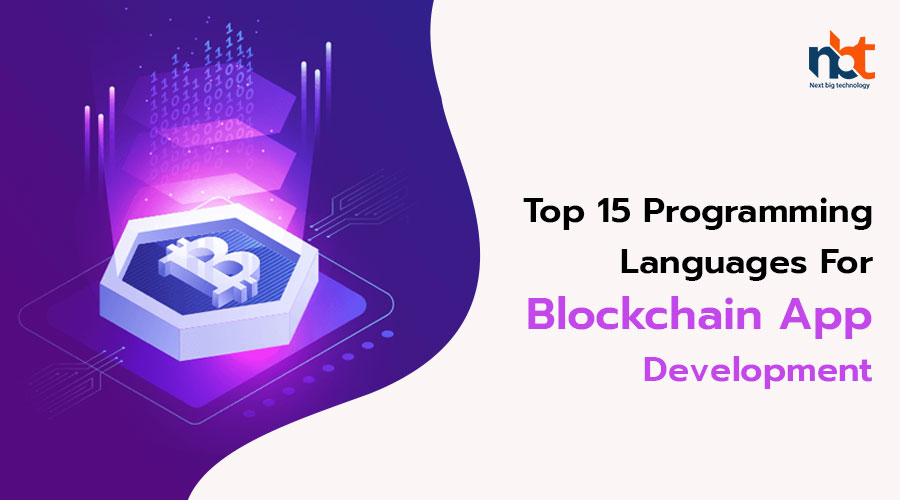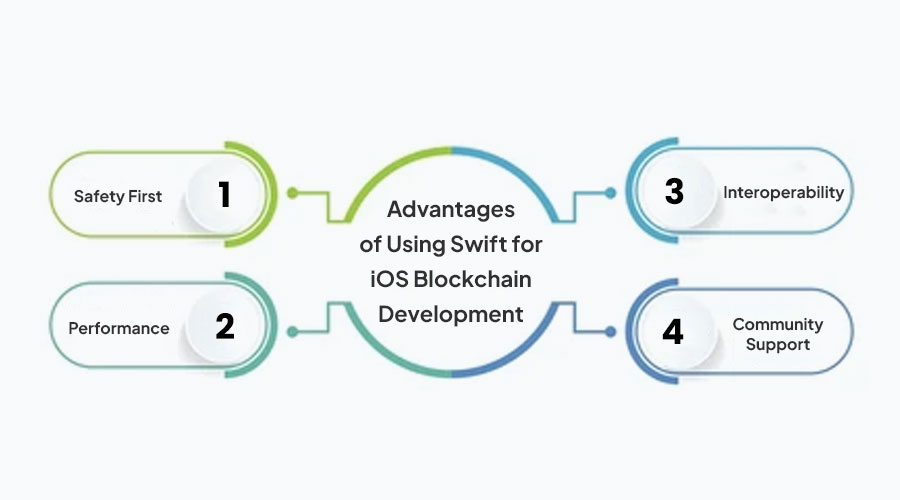Table of Contents
Introduction to Blockchain App Development
In today’s rapidly evolving digital landscape, blockchain technology has emerged as a groundbreaking innovation with the potential to revolutionize numerous industries. At its core, blockchain is a decentralized and immutable ledger system that facilitates secure and transparent transactions without the need for intermediaries. With its ability to ensure data integrity, enhance security, and streamline processes, blockchain is increasingly becoming the backbone of various applications across diverse sectors.
One of the most exciting aspects of blockchain technology is its capacity to support the development of decentralized applications, or dApps. These applications operate on a peer-to-peer network of computers, known as nodes, and leverage blockchain’s underlying principles to offer enhanced security, transparency, and efficiency. Blockchain app development involves creating these decentralized applications using blockchain platforms such as Ethereum, Hyperledger, or EOS.
To delve into the world of blockchain app development, it’s essential to understand the fundamental components and processes involved:
- Smart Contracts: At the heart of many blockchain applications are smart contracts, self-executing contracts with the terms of the agreement directly written into code. Smart contracts automate the execution of transactions and enforce predefined rules without the need for intermediaries, thereby enhancing efficiency and reducing the risk of fraud.
- Consensus Mechanisms: Blockchain networks rely on consensus mechanisms to validate transactions and ensure the integrity of the ledger. Common consensus algorithms include Proof of Work (PoW), Proof of Stake (PoS), and Delegated Proof of Stake (DPoS), each offering unique advantages in terms of security, scalability, and energy efficiency.
- Decentralized Storage: Traditional applications store data in centralized servers, making them vulnerable to hacks and data breaches. In contrast, blockchain applications utilize decentralized storage solutions such as InterPlanetary File System (IPFS) or Storj to distribute data across multiple nodes, thereby enhancing security and resilience.
- User Interface (UI) and User Experience (UX): Developing an intuitive and user-friendly interface is crucial for the success of any application, including blockchain-based ones. Effective UI/UX design ensures that users can easily navigate the application and interact with blockchain functionalities seamlessly.
- Testing and Deployment: As with any software development process, testing plays a vital role in ensuring the reliability and functionality of blockchain applications. Comprehensive testing methodologies, including unit testing, integration testing, and security audits, are essential to identify and address any vulnerabilities or bugs before deployment.
- Scalability and Performance: Scalability remains a significant challenge for blockchain networks, particularly as they strive to accommodate a growing user base and increasing transaction volumes. Developers must explore innovative solutions such as sharding, sidechains, and layer-two protocols to enhance the scalability and performance of blockchain applications.
Importance of Choosing the Right Programming Language
In the fast-paced world of technology, where innovation is the name of the game, choosing the right programming language is akin to selecting the perfect tool for a specific task. From building websites to developing complex algorithms for artificial intelligence, the choice of programming language can significantly impact the success of a project. In this article, we delve into the importance of selecting the right programming language and its implications across various domains.
- Compatibility and Efficiency: Each programming language is designed with specific features and functionalities. Choosing a language that aligns with the requirements of a project ensures compatibility and efficiency. For instance, if you’re developing a web application, languages like JavaScript, Python, or Ruby are preferred due to their robust frameworks and libraries tailored for web development.
- Scalability and Performance: The scalability and performance of a software application are directly influenced by the programming language used. Some languages are better suited for handling large-scale applications and processing massive amounts of data. For example, languages like Java and C++ are renowned for their high performance and scalability, making them ideal for enterprise-level systems and performance-critical applications.
- Community Support and Resources: The support and resources available for a programming language play a crucial role in the development process. An active community ensures continuous updates, bug fixes, and a plethora of resources such as tutorials, forums, and libraries. Languages like Python and JavaScript boast vibrant communities, making it easier for developers to troubleshoot issues and stay updated with the latest trends and best practices.
- Market Demand and Career Opportunities: The demand for specific programming languages varies across industries and regions. Choosing a language that is in high demand increases job opportunities and career growth prospects. For instance, languages like Python, Java, and JavaScript are consistently ranked among the most sought-after skills in the tech industry, opening doors to lucrative career opportunities.
- Project Requirements and Goals: Every project has unique requirements and goals, and selecting the right programming language is paramount to achieving success. Factors such as project complexity, performance requirements, development time, and team expertise should be considered when making a decision. A thorough analysis of these factors helps in choosing the most suitable language for the project at hand.
- Future-proofing and Adaptability: Technology evolves rapidly, and what may be the best choice today might become obsolete tomorrow. Therefore, it’s essential to consider the future prospects and adaptability of a programming language. Opting for languages with a strong ecosystem, community support, and versatility ensures that the project remains relevant and adaptable to future changes and advancements in technology.
Factors to Consider in Selecting a Programming Language for Blockchain
In the ever-evolving landscape of blockchain technology, selecting the right programming language is akin to choosing the perfect tool for a complex job. With the proliferation of blockchain platforms and their diverse applications across industries, developers are presented with a plethora of options. However, not all programming languages are created equal when it comes to building blockchain solutions. To embark on this journey wisely, it’s crucial to consider several factors that can significantly impact the success and efficiency of your project.
Understanding the Blockchain Ecosystem
Before delving into the factors influencing programming language selection, it’s imperative to grasp the nuances of the blockchain ecosystem. Blockchain, essentially a decentralized ledger system, operates on principles of transparency, immutability, and security. Smart contracts, self-executing contracts with the terms of the agreement directly written into code, are integral to blockchain functionality. Different blockchain platforms offer distinct features and cater to varied use cases, such as Ethereum for decentralized applications (DApps) and Hyperledger for enterprise solutions.
Factors to Consider
- Platform Compatibility: Each blockchain platform supports specific programming languages. Ethereum, for instance, primarily utilizes Solidity for smart contract development, while Hyperledger Fabric supports languages like Go, Java, and JavaScript. Understanding the compatibility between your preferred programming language and the target blockchain platform is paramount.
- Community Support and Documentation: Robust community support and extensive documentation are invaluable resources for developers. Opting for a programming language with a thriving community ensures access to resources, libraries, and active forums for troubleshooting and collaboration.
- Security Considerations: Security is paramount in blockchain development, given the potential risks associated with smart contracts, including vulnerabilities and exploits. Choosing a language with built-in security features and best practices can mitigate risks and enhance the resilience of your blockchain applications.
- Scalability and Performance: Blockchain scalability, the ability to handle increasing transaction volumes without compromising performance, is a critical consideration, especially for enterprise-grade solutions. Some programming languages may offer better scalability and performance optimizations than others, depending on the underlying blockchain architecture.
- Interoperability: In a multi-platform ecosystem, interoperability between different blockchain networks and legacy systems is essential. Selecting a programming language that facilitates interoperability can streamline integration processes and enhance the versatility of your blockchain applications.
- Future-proofing: As blockchain technology continues to evolve, future-proofing your development efforts is vital. Opting for a widely adopted and versatile programming language with a vibrant ecosystem can ensure longevity and adaptability to emerging trends and innovations in the blockchain space.
Solidity: The Go-To Language for Ethereum Smart Contracts
In the ever-evolving realm of blockchain technology, Ethereum stands as a pioneer, offering a robust platform for decentralized applications (DApps) and smart contracts. At the heart of Ethereum’s smart contract ecosystem lies Solidity, a programming language specifically designed for crafting these self-executing digital agreements. With its user-friendly syntax, security features, and extensive developer community, Solidity has emerged as the premier choice for Ethereum smart contract development.
Understanding Solidity
Solidity, introduced in 2014 by Ethereum’s co-founder Gavin Wood, embodies simplicity and functionality. It draws inspiration from various programming languages like JavaScript and C++, making it accessible to developers with diverse coding backgrounds. Its syntax is designed to be both readable and writable, facilitating smoother development processes.
Why Solidity Reigns Supreme
- Compatibility: Solidity seamlessly integrates with Ethereum Virtual Machine (EVM), the runtime environment for executing smart contracts in Ethereum. This compatibility ensures that contracts written in Solidity can be executed efficiently on the Ethereum blockchain.
- Security: Security is paramount in blockchain development, especially when dealing with financial transactions and sensitive data. Solidity incorporates built-in features such as static analysis tools and automated bug detection to enhance code security and minimize vulnerabilities.
- Community Support: The Solidity ecosystem boasts a vibrant community of developers, constantly contributing to its growth and refinement. This active community provides invaluable resources, including documentation, tutorials, and forums, making it easier for developers to learn and troubleshoot.
- Smart Contract Flexibility: Solidity offers unparalleled flexibility in designing smart contracts, allowing developers to implement complex logic and functionalities. From simple token contracts to decentralized autonomous organizations (DAOs) and decentralized finance (DeFi) protocols, Solidity empowers developers to bring their innovative ideas to life on the Ethereum blockchain.
- Continuous Improvement: The Solidity development team is committed to continuous improvement, regularly releasing updates and enhancements to address emerging challenges and incorporate new features. This dedication to refinement ensures that Solidity remains at the forefront of smart contract development.
The Future of Solidity
As Ethereum continues to evolve with upgrades like Ethereum 2.0 and the transition to a proof-of-stake consensus mechanism, Solidity is poised to evolve alongside it. Developers can expect further optimizations, enhanced security features, and expanded capabilities to meet the demands of an increasingly sophisticated decentralized ecosystem.
In conclusion, Solidity stands as the go-to language for Ethereum smart contracts, offering a potent combination of accessibility, security, and flexibility. Its enduring popularity and widespread adoption underscore its indispensable role in driving innovation within the Ethereum ecosystem. As blockchain technology continues to reshape industries and redefine the way we interact with digital assets, Solidity remains steadfast as the cornerstone of decentralized application development on the Ethereum blockchain.
JavaScript: Widely Used for Building Blockchain Applications
In the realm of digital innovation, few technologies have sparked as much excitement and potential as blockchain. This revolutionary decentralized ledger system has transcended its origins in cryptocurrency to find applications in finance, supply chain management, healthcare, and beyond. At the heart of many blockchain applications lies JavaScript, a versatile and widely used programming language that has become synonymous with web development. Let’s delve into why JavaScript is the go-to choice for building blockchain applications and explore some notable examples of its implementation in this rapidly evolving field.
Understanding JavaScript’s Role in Blockchain Development
JavaScript’s popularity stems from its ease of use, flexibility, and extensive ecosystem of libraries and frameworks. These characteristics make it an ideal candidate for blockchain development, where agility and scalability are paramount. Additionally, JavaScript’s event-driven architecture aligns well with the asynchronous nature of blockchain transactions, allowing developers to create responsive and efficient decentralized applications (dApps).
One of the primary reasons for JavaScript’s prominence in blockchain development is its compatibility with both frontend and backend environments. Developers can leverage frameworks like Node.js to build server-side applications, while frontend frameworks like React and Angular facilitate the creation of intuitive user interfaces for interacting with blockchain networks. This versatility streamlines the development process and enables seamless integration between different components of a blockchain ecosystem.
Implementing JavaScript in Blockchain Applications
JavaScript’s integration with blockchain technologies is not limited to a specific platform or protocol. Whether developers are building applications on Ethereum, Hyperledger Fabric, or any other blockchain framework, they can harness the power of JavaScript to unlock a wealth of possibilities.
For instance, Ethereum, the leading platform for smart contract development, provides extensive support for JavaScript through libraries like Web3.js and ethers.js. These libraries enable developers to interact with the Ethereum blockchain, deploy smart contracts, and build decentralized applications using familiar JavaScript syntax.
Hyperledger Fabric, another popular blockchain framework for enterprise solutions, offers Node.js SDKs that simplify the process of developing and deploying blockchain applications. By leveraging JavaScript, developers can leverage Hyperledger Fabric’s modular architecture to create customized solutions tailored to specific business requirements.
Real-World Applications of JavaScript-Powered Blockchain Solutions
The marriage of JavaScript and blockchain has given rise to a myriad of innovative applications across various industries. One notable example is the use of blockchain technology in supply chain management. Companies like IBM have developed blockchain platforms powered by JavaScript, enabling transparent and traceable supply chains that enhance accountability and mitigate risks such as counterfeiting and fraud.
In the realm of finance, JavaScript-based blockchain applications are revolutionizing peer-to-peer lending, remittances, and decentralized finance (DeFi). Platforms like Compound Finance and Uniswap rely on JavaScript to provide users with seamless access to financial services while eliminating intermediaries and reducing transaction costs.
Python: Versatile Language for Blockchain Development
Swift: Emerging Language for iOS Blockchain Development
In the dynamic realm of blockchain technology, where innovation is the heartbeat, the choice of programming language can be the differentiating factor between a breakthrough project and a mediocre one. Enter Swift, the rising star in iOS development, which is now making significant strides in the blockchain domain. Let’s delve into why Swift is emerging as the go-to language for iOS blockchain development.
Understanding Swift: A Brief OverviewSwift, introduced by Apple in 2014, swiftly garnered attention for its simplicity, safety, and performance. Designed to work seamlessly with Apple’s ecosystem, Swift has become the cornerstone of iOS app development. Its concise syntax and powerful features make it a favorite among developers, enabling them to build robust applications with ease.
Swift and Blockchain: A Perfect MatchThe marriage of Swift with blockchain technology is a natural progression. Blockchain, known for its decentralized and secure nature, requires a language that can handle complex algorithms efficiently while ensuring utmost security. Swift fits the bill perfectly with its modern features like Optionals, Generics, and Type Safety, facilitating the development of intricate blockchain protocols and applications.
Advantages of Using Swift for iOS Blockchain Development
- Safety First: Swift prioritizes safety, reducing common programming errors and vulnerabilities, which is paramount in blockchain development where security is non-negotiable.
- Performance: Swift’s performance is exceptional, ensuring that blockchain applications run smoothly and efficiently even with large datasets.
- Interoperability: Swift plays well with Objective-C, allowing developers to seamlessly integrate existing blockchain libraries and frameworks into their iOS applications.
- Community Support: With a thriving community of developers and extensive documentation, Swift offers ample resources and support for tackling complex blockchain projects.
Real-world Applications
The versatility of Swift combined with the revolutionary potential of blockchain opens up a plethora of opportunities across various industries:
- Finance: Swift-powered iOS blockchain applications can streamline financial transactions, enabling secure and transparent payments, lending, and trading.
- Supply Chain: Blockchain-based supply chain solutions built with Swift can enhance transparency and traceability, reducing fraud and ensuring authenticity.
- Healthcare: Swift facilitates the development of blockchain-enabled healthcare apps that securely store and share medical records, ensuring data privacy and integrity.
Challenges and Future Prospects
While Swift holds immense promise for iOS blockchain development, it’s not without its challenges. Ensuring compatibility with different blockchain protocols, optimizing performance for resource-constrained devices, and addressing scalability issues are some areas that require continuous innovation and refinement.
Looking ahead, the future seems bright for Swift in the blockchain arena. As the technology matures and adoption grows, we can expect to see a surge in innovative blockchain solutions powered by Swift, driving greater efficiency, transparency, and security across diverse sectors.
Top Blockchain App Development Companies
In the ever-evolving landscape of technology, blockchain has emerged as a transformative force, revolutionizing various industries with its decentralized, secure, and transparent nature. From finance to healthcare, supply chain management to gaming, blockchain technology is reshaping processes and redefining possibilities. At the heart of this innovation are the visionary blockchain app development companies, driving the adoption and implementation of blockchain solutions across diverse sectors.
Here, we delve into the realm of blockchain app development to uncover the top companies leading the charge towards a decentralized future:
-
-
Next Big Technology:

Focus Area
- Mobile App Development
- App Designing (UI/UX)
- Software Development
- Web Development
- AR & VR Development
- Big Data & BI
- Cloud Computing Services
- DevOps
- E-commerce Development
Industries Focus
- Art, Entertainment & Music
- Business Services
- Consumer Products
- Designing
- Education
- Financial & Payments
- Gaming
- Government
- Healthcare & Medical
- Hospitality
- Information Technology
- Legal & Compliance
- Manufacturing
- Media
-
- Consensys: As a powerhouse in the blockchain space, Consensys has earned acclaim for its innovative approach and commitment to advancing decentralized solutions. With a diverse range of products and services, Consensys caters to various industries, including finance, healthcare, and government. Through its comprehensive suite of tools and platforms, Consensys continues to shape the future of blockchain technology.
- IBM Blockchain: Leveraging its extensive experience and resources, IBM Blockchain stands as a pioneer in enterprise blockchain solutions. With a focus on scalability, security, and interoperability, IBM Blockchain offers a robust framework for developing blockchain applications across industries. From supply chain optimization to digital identity management, IBM Blockchain’s solutions drive efficiency and transparency in business operations.
- Ripple: Recognized for its innovative blockchain-based payment solutions, Ripple has established itself as a key player in the fintech industry. Through its RippleNet network and XRP cryptocurrency, Ripple facilitates fast, low-cost cross-border transactions, revolutionizing the global payments landscape. With a focus on accessibility and efficiency, Ripple continues to lead the way in transforming traditional finance through blockchain technology.
- EOS Development: Empowering developers with a scalable and flexible blockchain platform, EOS Development is at the forefront of blockchain app development. With its high-performance infrastructure and developer-friendly tools, EOS Development enables the creation of decentralized applications (dApps) with ease. From gaming to social networking, EOS Development provides a versatile platform for building innovative blockchain solutions.
- Hyperledger: Backed by the Linux Foundation, Hyperledger is an open-source collaborative effort driving blockchain innovation across industries. With its modular framework and diverse set of tools, Hyperledger offers enterprises the flexibility to build and deploy custom blockchain applications. From supply chain traceability to digital asset management, Hyperledger’s projects empower organizations to leverage the benefits of blockchain technology.
- Chainyard: Specializing in blockchain consulting and development services, Chainyard helps organizations navigate the complexities of blockchain adoption. With a focus on interoperability and security, Chainyard designs and implements blockchain solutions tailored to the unique needs of its clients. From blockchain integration to smart contract development, Chainyard’s expertise spans various industries, including healthcare, finance, and manufacturing.
FAQs On Blockchain App Development
In the rapidly evolving landscape of technology, blockchain has emerged as a revolutionary force, transforming industries and redefining the way we perceive digital transactions. With its decentralized and transparent nature, blockchain technology offers immense potential for various applications, including finance, healthcare, supply chain management, and more. As businesses explore the possibilities of blockchain, many questions arise regarding its development process. In this article, we delve into the frequently asked questions (FAQs) surrounding blockchain app development to provide clarity and insights.
What is Blockchain App Development?Blockchain app development involves creating decentralized applications (DApps) that leverage blockchain technology. These applications utilize distributed ledgers to record and verify transactions securely and transparently. Developers use various programming languages and blockchain platforms like Ethereum, Hyperledger, or EOS to build DApps tailored to specific business requirements.
What Are the Key Components of Blockchain App Development?
- Consensus Mechanism: Determines how transactions are validated and added to the blockchain.
- Smart Contracts: Self-executing contracts with predefined rules encoded on the blockchain.
- Decentralized Storage: Distributed storage ensures data integrity and resilience.
- User Interface (UI) and User Experience (UX): Design elements that enhance usability and accessibility.
- Security Features: Encryption, authentication, and permission settings to safeguard data and transactions.
How Does Blockchain Ensure Security?Blockchain achieves security through its decentralized architecture and cryptographic techniques. Each transaction is encrypted and linked to previous transactions, forming a chain of blocks. Consensus mechanisms like Proof of Work (PoW) or Proof of Stake (PoS) ensure that transactions are validated by network participants. Additionally, smart contracts enforce predefined rules, reducing the risk of fraud or manipulation.
What Are the Challenges in Blockchain App Development?
- Scalability: Balancing transaction throughput with network efficiency.
- Interoperability: Ensuring compatibility between different blockchain platforms.
- Regulatory Compliance: Navigating evolving legal frameworks and compliance requirements.
- Privacy Concerns: Protecting sensitive data while maintaining transparency.
- Resource Intensity: Addressing the computational and energy costs associated with blockchain operations.
How Long Does It Take to Develop a Blockchain App?The development timeline for a blockchain app varies depending on factors such as complexity, features, and team expertise. Simple applications may take a few months to develop, while more complex projects could extend to a year or more. Iterative development methodologies like Agile can expedite the process by allowing incremental improvements and adjustments based on feedback.
What Skills Do I Need for Blockchain App Development?Proficiency in programming languages like Solidity (for Ethereum), Java, or Go is essential for developing smart contracts and backend functionalities. Knowledge of blockchain platforms, cryptography, and distributed systems is also beneficial. Additionally, expertise in web development, UI/UX design, and cybersecurity enhances the overall quality of the application.
How Can I Ensure the Success of My Blockchain App?
- Thorough Planning: Define clear objectives, target audience, and use cases.
- Collaborative Development: Foster communication and collaboration within the development team.
- Continuous Learning: Stay updated on emerging trends, technologies, and best practices in blockchain.
- User Feedback: Solicit feedback from early adopters to identify areas for improvement.
- Adaptability: Be prepared to iterate and adapt to evolving market demands and technological advancements.
Thanks for reading our post “Top 15 Programming Languages For Blockchain App Development”. Please connect with us to learn more about Best Blockchain App Development.















